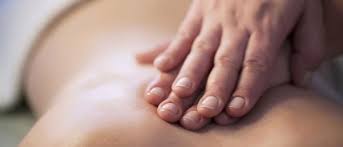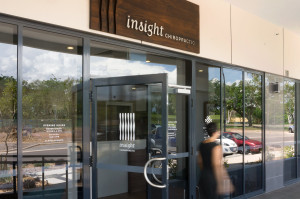Myotherapy
Myotherapy is a physical therapy within the Allied Health Profession that specializes in soft tissue treatment. Soft tissue represents the muscles, ligaments, tendons and fascia (tissue between muscle) which is prone to malfunction when overused or overloaded leading to all kinds of aches, pains and injury.
If you have pain or dysfunction due to muscles or fascia (tissue between muscle) you have a myofascial pain syndrome.Pain or symptoms caused by muscle (myo) or fascia (tissue between muscle) is described as myofascial. Myofascial pain is described by the patient as a ‘deep ache’, ‘tightness’ or ‘tenderness’ in an area. Myofascial pain symptoms can vary in intensity and may radiate to another areas. Reduced range of motion of muscles/joints and the feeling of stiffness, fatigue, weakness, numbness or a tingling sensation are common.
Myotherapists are tertiary trained in biophysical science and are recognised professionally through the Institute of Registered Myotherapists of Australia Inc. They have course accreditation by the Victorian Post Secondary Education Board (VPSEAB). Eligible patients may recover fees through Workcover and some private health insurance companies.
A Myotherapist assesses, according to your presenting complaint, muscle and other soft tissue activity by looking at your posture, ranges of movement, applying physical tests and touch to help identify the most likely cause of your pain or injury. Myotherapy is then applied to restore and maintain the normal integrity of the soft tissue structure of the human body using a number of different techniques and treatment modalities. The most common myotherapy technique used is hands on soft tissue massage procedures such as:
Trigger Point Therapy: for alleviation of abnormal muscle contraction (‘tightness’) called trigger points (‘knots’).
Myofascial Therapy: for improving flexibility and mobility of the muscle and fascial unit.
Frictions: to reduce adhesions between fascial layers, muscles and the like. Frictions also promote healing in tendon pathologies as well as decreasing pain perception.
Muscle Energy Technique (MET): to increase joint range due to muscle dysfunction through the use of light contractions by the client in very specific directions.
Our myotherapist may also employ a number of treatment modalities to compliment the soft tissue massage, such as:
Myofascial Dry Needling: Dry Needling is a form of therapy adapted from Acupuncture where fine needles are placed in selected myofascial trigger points to promote healing and desensitize pain referral.
Cupping Therapy: Cupping, originated from China and Egypt involving the use of suction cups to stimulate blood flow to particular areas of soft tissue that dramatically reduces pain.
Although myotherapy focuses on treating myofascial pain syndromes, regular myotherapy can help maintain soft tissue integrity that helps combat hectic lifestyle and intense workplace demands.
Do I Need A Referral To See A Myotherapist?
No. Most Myotherapists will see patients without a referral from a Doctor, however for Workcover claims it is necessary. If our Myotherapist decides there is a need for further assessment or specialised treatment they will refer you to the appropriate health professiona eg Chiropractor, Naturopath, GP etc
What Conditions Do Myotherapists Treat?
Myotherapists treat the cause as well as the symptoms of myofascial pain in many conditions. It may originate from overactive muscle contraction (‘tightness’), underactive muscle contraction (‘weakness’) or trigger points (‘knots’) in muscle or fascia. Trigger points are tender, irritable areas in muscle which often refer pain and other symptoms such as numbness or tingling to areas. Trigger points can be caused by many factors such as poor posture, overuse of muscles, stress, incorrect lifting and lack of sleep.
Common Conditions Treated By Myotherapists :
Chronic Overuse Syndrome
Caused by poor posture at a computer or prolonged driving.
Headaches A result of tension in neck and shoulder muscles which refer pain to areas of the head.
Chronic Back Pain(including ‘Sciatica’) Caused by tightness in muscles to which the sciatic nerve passes through.
Lateral Epicondylitis (Tennis Elbow) Localized tenderness of elbow and radiating pain to forearm. Often as a result of trigger points developing due to overuse and weakness of wrist extensor muscles.
Shoulder Pain (Impingement Syndrome) During overhead arm motions impingement can cause micro-trauma, and result in pain and inflammation of the shoulder. Abnormal muscle contraction such as underactive rotator cuff muscles and overactive pecs can result.
Chronic Knee Pain May be caused by the patella (‘knee cap’) sliding incorrectly in the knee. This can be a result of many factors including muscle imbalance in the thigh, and pronation of the foot.
Hand & finger numbness and tingling Compression of nerves and/or blood vessels at the thoracic outlet due to abnormal muscle contraction and trigger points in neck muscles (usually scalenes) can cause these symptoms. Your sitting posture at work or your sleeping position (e.g. pillow height) may be contributing factors.
Shin Splints Common term used to describe exercise induced pain to the lower leg. e.g. Medial Tibial Stress Syndrome can be treated by a Myotherapist using a variety of techniques including soft tissue manipulation, dry needling, electro-mechanical stimulation, and thermal applications.
Stiff Neck Often a result of abnormal muscle contraction which causes severe pain and discomfort on movements of the head and neck. Passive stretching, and thermal techniques and soft tissue manipulation are often used to reduce the contraction and relieve discomfort relatively quickly. Contributing factors need to be considered.
Foot Pain Pain in this area can often be referred from trigger points in leg or foot muscles. Myotherapists can treat the trigger points and also address any perpetuating factors e.g. poor footwear.
Sprained Ankle Overstretching of muscles (e.g. peroneals) often occurs with an ankle sprain. The resulting abnormal muscle and/or trigger points can be effectively treated.
Remedial Massage
Remedial massage is the systematic assessment and treatment of the muscles, tendons, ligaments and connective tissues of the body to assist in rehabilitation, pain and injury management. Its performed to create favourable conditions for the body to return to normal health after injury and is defined by the premise that the treatment can reasonably reverse certain physical effects a patient may be presenting. If a patient has suffered moderate injury resulting in structural pain and/or loss of function, then remediation is required to reduce or eliminate pain and restore that function. Remedial massage is designed to balance muscle/soft tissue length, tension, tone which will in turn promote the return to normal joint/capsular/bone position; increase the flow of blood and lymph, particularly in the injured areas, thus removing blockages, damaged cells, scar tissues and adhesion resulting from injury.
The benefits of massage affect the body as a whole, promoting general well-being and enhancing self-esteem. Massage therapy can:
- Reduce Muscle Tension

- Improves Blood Circulation
- Induces Better Lymph Movement
- Increased Mobility and Range of Motion of Joints
- Results in Better Digestion and Intestinal Function
- Relieves of Acute and Chronic Pain
- Enhances Skin Condition
- Reduces Stress
Sports Massage
Sports massage is a deeper type of massage that can enhance sports performance and aid recovery to all kinds of athletes from elite swimmers to weekend football warriors. If you exercise regularly sports massage can help you:
- Recover more smoothly from heavy workout or training sessions
- Train harder for longer and get fitter faster without the usual injury dramas
- Reduce annoying muscle pain and other soft-tissue injuries during training
- Achieve your best at crunch time, when it counts
- Extend your athletic career
Fee Schedule for Myotherapy/Remedial Massage
All consultations. $110. Please allow 1 hour for your treatment
